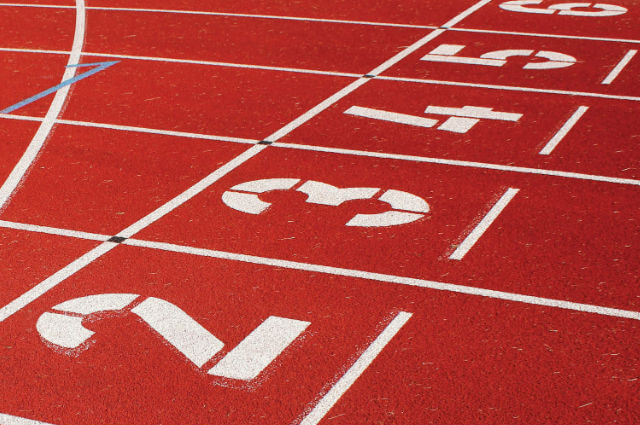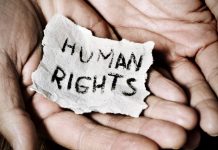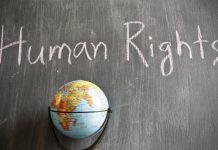This article is written by Harshit Bhimrajka, currently pursuing B.A. LLB (Hons.) from the Rajiv Gandhi National University of Law, Patiala. This is an exhaustive article which talks about international human rights in sports, and various international conventions/charters and organizations concerning sports as human rights.
Table of Contents
Introduction
Sport is a field that has a unique ability to attract and inspire almost all people of the world. The sport includes all the physical activities and skills, by which two sets of teams entertain people by their performance. Sports is seen to be pertinent these days as it develops the emotional and physical health of the people and helps to build social connections. Sports have a huge impact on human rights and it is the best ambassador to promote human rights. Human rights are the rights that belong justifiably to every person without any discrimination.
Sports are connected to the definition of human rights as it helps to promote various rights, the right to culture, right to health, right to participation, right to education. Its impact on human rights is as it encourages the integration of people from different cultures and backgrounds, those with physical disabilities, and also helps to promote gender equality. Sports is a pertinent enabler of sustainable development and has been proven to be a cost-effective tool for promoting peace objectives. Sports had also played a vital role in enhancing the Millenium Development Goals and now have the same place in the Sustainable Development Goals-2030 Agenda. Sports has also contributed to the promotion of peace and development in many ways like empowering women and young people, educating about health benefits to individuals and communities, and social inclusion objectives. In this article, we will discuss the various international charters and organizations related to sport and human rights.
International Conventions and organisations
Sports touches upon many human rights aspects and international conventions concerning human rights. Sports were mentioned at the UN level Human Rights Council resolution on promoting human rights through sports. The resolution recognizes sport as a vehicle to foster the inclusion and development, promote health, education, peace and strengthen children’s education; empower female gender; conflict prevention and peacebuilding, prevent drug abuse and other diseases, promote well being of persons with disabilities [PWD], and calls upon states to cooperate the efforts of different committees’ effort to use sport as a tool to promote peace, development, reconciliation, dialogue, and human rights. Thereafter an advisory committee was formed to study the use of sport and the Olympic ideal to promote human rights. Some of the international conventions related to human rights in sports are:
The Olympic Charter
The Olympic Charter was codified in the year 1908 and was written by then-IOC President, founder of the modern Olympic movement, and a French aristocrat. It is chartered from the Swiss Federal Council, the executive-legislative body of the Switzerland Government. It is the compilation of rules, fundamental principles, and bylaws that establish and regulate the International Olympic Committee and its other subsidiaries. The Olympic Charter contains a Preamble and seven Fundamental Principles, and the main body organized into six chapters. The Fundamental Principles place sports in the broader context of community, culture, humanity, and declare sports as a human right. The second principle describes the goal of Olympism as to place sport as the service of the harmonious development of humankind, and to promote a peaceful society concerned with the preservation of human dignity. The fourth fundamental principle of the Olympic Charter declared that the practice of sport is a human right. Every individual must have the possibility of practising sport, without discrimination of any kind and in the Olympic spirit, which requires mutual understanding with a spirit of friendship, solidarity, and fair play. The sixth Fundamental Principle of the Charter said that rights and freedom should be secured without any discrimination of any kind of status.
UNESCO International Charter of Physical Education, Physical Activity and Sport
During the 38th Session of the UNESCO (United Nations Educational, Scientific, and Cultural Organization) General Conference on 18th November, 2015 the International Charter of Physical Education, Physical Activity and Sport was adopted. This charter is the successor of the International Charter of Physical Education and Sport which was adopted in 1978. The original charter was the first right based document to state that “the practice of physical education and sport is a fundamental right for all.” This charter highlights the inclusion of all the persons including those with disabilities, benefits of sports and physical activities, the role of sport for peace development, the need for integrity of sport from violence, corruption, manipulation, doping, and violation of human rights.
The objective of the Charter is to promote gender equality, social inclusion, non-discrimination, and sustained dialogue in societies and mainly to promote sport as a human right. The charter contains a preamble and twelve articles. Article 1 of the Charter recognizes the practice of physical education, physical activity, and sport as a fundamental right of all the people. It recognizes that there should be the support to practice the sport and other physical activities by government and sport and educational institutions and that it should be inclusive, adaptable, and safe to all ages of people. It also recognizes the importance of preserving traditional and indigenous sports, games, and other physical activities to express the rich heritage which must be promoted and protected. The charter reviews the importance of participation, and the sustainability of economic, social, and environmental activities and stresses the need for proper, adequate, and efficacious training, research, and safe spaces.
The United Nation Office on Sports for Development and Peace
In the year 2001, The United Nations Office on Sports for Development and Peace was introduced and it is situated at the UN Office Geneva. The main objective of this office is to promote the sport in a systematic and coherent way as a means to contribute to the achievement of development and peace. It has implemented many strategies to foster the development of the sport, especially of youth. It also addresses the areas of child protection in sports, protection of human rights in sports, and also strengthens child, and youth education. It has proposed that nations should implement policies and international standards to educate youth, parents, coaches to prevent or combat the human rights abuses/violations in sports. This strategy promoted the non-discriminatory behaviour of the people, equality, and fairness in the sports system. This strategy of educating the people will help to combat breaches of human rights and abuse and will guide them about the risks of abuse in sports, their rights, and to whom to report in such a situation.
Council of Europe
The Council of Europe is the most active institution for the protection of human rights of youth and athletes founded in 1949 consisting of 47 member states, with a population of 820 million approx. It was founded with the view to promote sport as a most pertinent factor in human development and ensure the government of the member states takes necessary steps to apply the provisions of the charter in accordance with the principles in the Code of Sports Ethics. Membership of the institution is open to all European countries who seek cooperation, harmony, good governance, and human rights, accepting the principle of law and also willing to guarantee democracy, fundamental human rights, and freedoms. It helps to enable the participation of every person in sports and to ensure that all people should have the opportunity to receive proper physical education and basic sports skills. The Charter will also help to protect and develop the moral and ethical aspects of sport and promote the human dignity and safety of those involved in sport, by safeguarding sport, sportsmen, and women from exploitation for political, commercial and financial gain and from practices that are abusive or degrading including the abuse of drugs and the sexual harassment and abuse of children, young people, and women.
Centre for Sports and Human Rights
The Centre for Sports and Human Rights was established on 25th June, 2018 at Geneva. This is the main centre for promoting and protecting human rights tied to sports. The centre is the unprecedented coalition of governments, sponsors, intergovernmental organization, sports bodies, national human rights institutions, trade unions, local organizing committees, non-governmental organizations, athletes, and employers that have come together to show that sport has the potential to create a positive change in the world. The main aim of the centre is to curb human rights abuses tied to sports and assist victims. It also addresses the abuses linked to mega-sporting events such as the World Cup, and the Olympics. It was established under the auspices of the Institute for Human Rights and Business and the centre is headed by the former president of Ireland and former UN High Commissioner for Human Rights, Mary Robinson. The centre will seek to provide resources for remediation and learning, working to limit and ultimately eradicate the serious human rights abuses and violations. It will try to prevent future human rights abuses linked to sports and will provide a space for the victims seeking justice.
Mary Robinson said that the centre is the product of several years of collaboration and development by various people across the value chain of sport. He said that the centre’s vision is to create an environment in a world of sport that fully respects human rights. The centre is created with an aim to the public good while working with sports bodies, affected groups, events hosts, and others to share knowledge, strengthen accountability, and build capacity. He also said that they have a duty to ensure that the freedom of sport is not built on the unfreedom of others.
The centre is created to mainly focus on these issues:
- Pressing for remedies for human rights abused victims (tied to major sporting events);
- Protection of journalists, athletes, right monitors, and defenders;
- Tackling systemic discrimination on the basis of gender, generally against women and LGBT people in sports;
- Improving the safety of workers to curb end worker deaths and injuries on stadium and other infrastructure construction sites.
Minky Worden, the director of Global Initiatives at Human Rights Watch said that “Sport has the potential to inspire and celebrate human achievement. So there is no reason one worker should die or one journalist should be jailed to deliver a major sporting event,” We expect the centre to move the ball forward to protect the rights of workers, journalists, athletes, environmentalists, and fans.”
Conclusion
The protection of human rights in regard to sports need to be given significant attention. Sport is that practice by which people learn various values such as fairness, equality, perseverance, team building, inclusion, respect, and discipline that cross nationality, gender, physical condition, or age. Sports have contributed to the well being of the person regardless of age, gender, or ethnicity. It has become paramount to build stronger bridges to advocate, pledge, and promote sport as a human right. When it comes to sport everyone practices it without any kind of discrimination such as nationality, sexual orientation, social origin, race, language, colour, property, birth, sex, or any other status. It is enjoyed by all, and its reach is unrivalled. The question of human rights and sports is gradually becoming part of the sports movement and international sports policy. It is a reflection of the ever-strengthening universality of human rights, of the major role sport plays for a large part of the world’s population, and also of a society which is becoming more litigious.
“The practice of sport is a human right and should be done with a spirit of friendship, solidarity, and fair play.”
References
- Ruiz Ana, Where is our Human Right to Sport, The Bridge: http://www.thebridge vie n n a.org/human-right-to-sport/
- Peter Donnelly (2008) Sport and human rights, Sport in Society, 11:4, 381-394, DOI: 10.1080/17430430802019326
- New Global Center for Sport and Human Rights, June 26 2018: https://www.hrw. o r g / news/2018/06/26/new-global-center-sport-and-human-rights
- https://www.coe.int/en/web/sport/sport-human-rights
- https://www.ohchr.org/EN/NewsEvents/Pages/CentreForSportandHumanRights.aspx
- Lemke Wilfried, The Role of Sport in Achieving the Sustainable Development Goals, UN Chronicle, August 2016: https://unchronicle.un.org/article/role-sport-achieving-sus tai n able-development-goals
LawSikho has created a telegram group for exchanging legal knowledge, referrals and various opportunities. You can click on this link and join:
 Serato DJ Crack 2025Serato DJ PRO Crack
Serato DJ Crack 2025Serato DJ PRO Crack











 Allow notifications
Allow notifications


